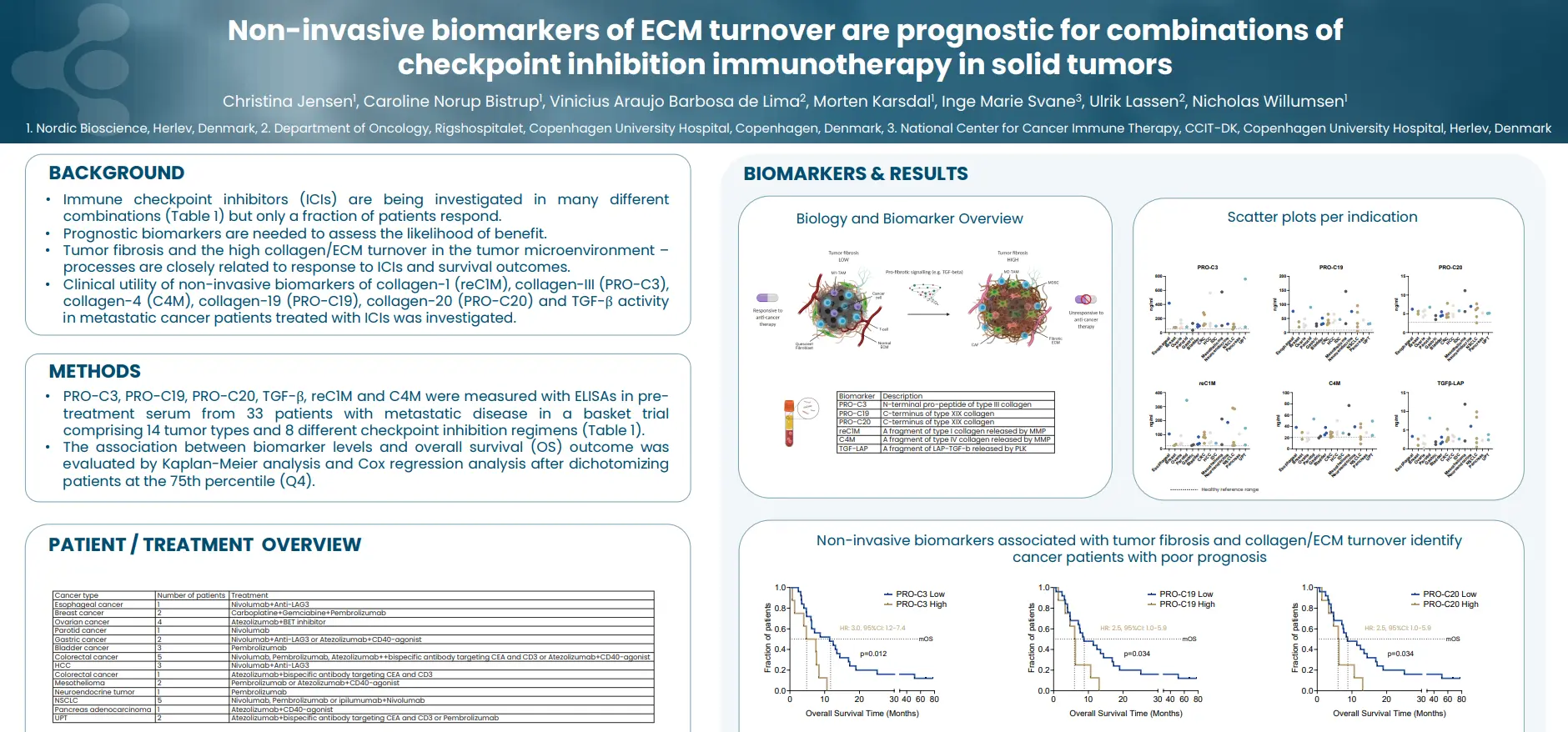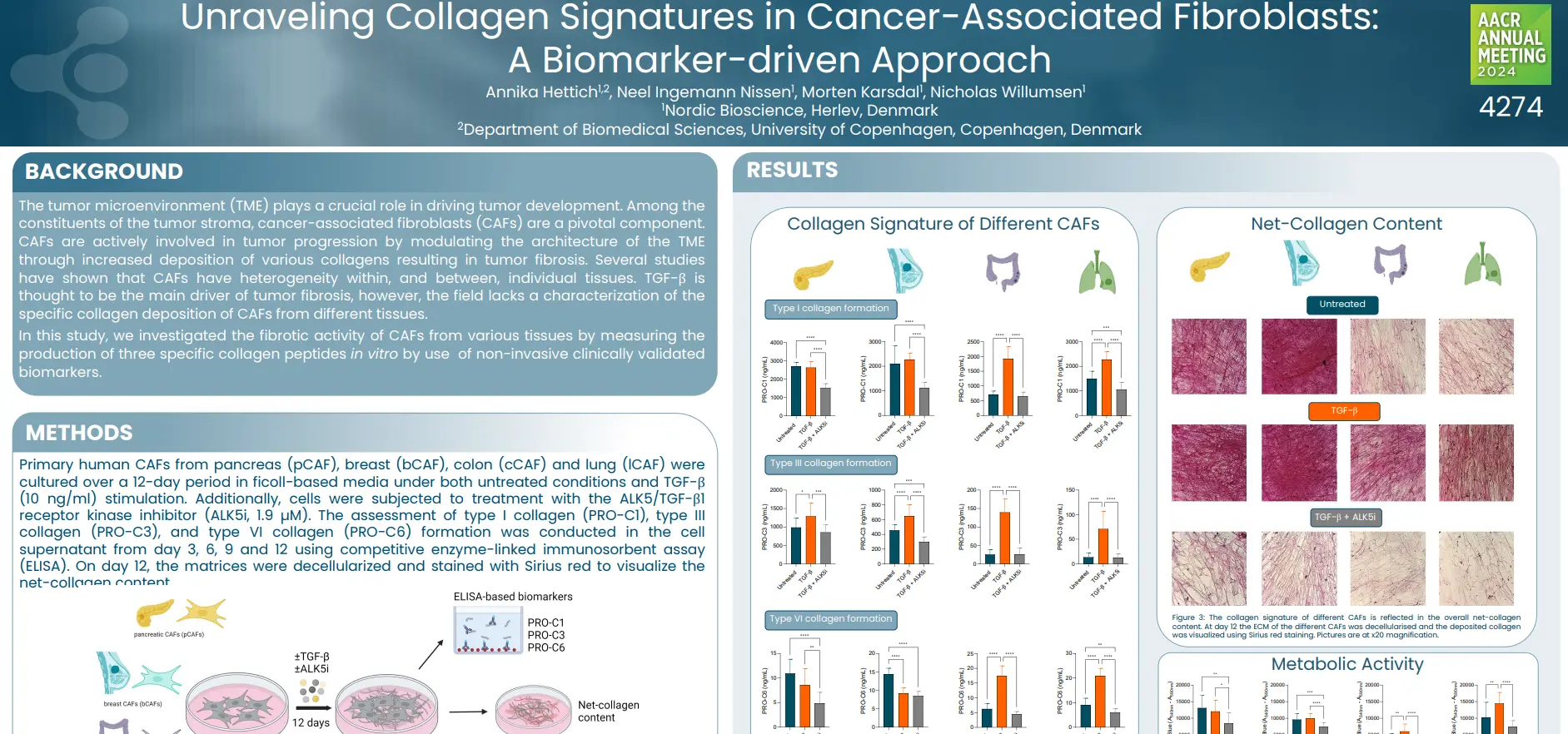Non-invasive biomarkers of ECM turnover are prognostic for combinations of checkpoint inhibition immunotherapy in solid tumors
Introduction
Immune checkpoint inhibitors (ICIs) are being investigated in many different combinations (Table 1) but only a fraction of patients respond. This highlights the need for prognostic biomarkers that can help identify patients most likely to respond. Tumor fibrosis and the high collagen/ECM turnover in the tumor microenvironment – processes are closely related to response to ICIs and survival outcomes.
In this study we investigated the clinical utility of non-invasive biomarkers of collagen-1 (reC1M), collagen-III (nordicPRO-C3™), collagen-4 (C4M), collagen-19 (PRO-C19), collagen-20 (PRO-C20) and TGF-β activity in metastatic cancer patients treated with ICIs.
Poster
Conclusion
Across a diverse cohort of patients with metastatic cancer treated with different checkpoint inhibition regimens, non-invasive biomarkers associated with tumor fibrosis and collagen/ECM turnover (nordicPRO-C3™, PRO-C19, PRO-C20, TGF-β, reC1M and C4M) could identify cancer patients with poor prognosis.


